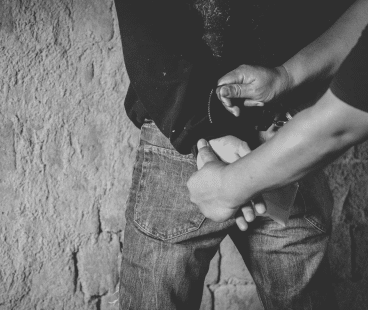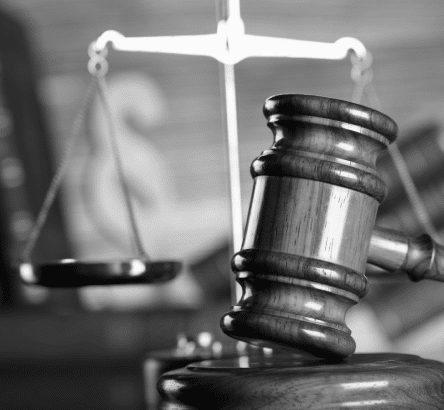Can You Sue a Police Department?
If you’ve been the victim of police brutality, false arrest, or other police misconduct, you may be able to sue the department to receive justice and get compensation for your losses. At Police Brutality Center, we empower individuals to take legal action against police departments and police officers. Learn more about common misconduct claims, how to sue a police department or police officer, and the pivotal role of legal representation. Our team of dedicated advocates is committed to helping you navigate the system’s complexities and confidently pursue justice.
Attorneys that work with Police Brutality Center may be able to assist you.
"*" indicates required fields
Content Last Updated: February 2, 2026
Police misconduct, a term that draws attention and concern from the public, is often associated with acts that violate an individual’s rights. While it’s important to recognize that most law enforcement officers carry out their duties with integrity, instances of misconduct exist. So, when faced with such incidents, can you take legal action against the police department?
Understanding the answer to this question is imperative for anyone victimized by the police. At Police Brutality Center, we advocate for victims and help them seek justice.
If you’re going to sue a police department, the process is that you really need to reach out to a lawyer. A lawyer has to evaluate whether or not you are within the statute of limitations. A lawyer has to be able to make sure that they put together what’s called a notice of claim in a lot of jurisdictions, if you have a case against a municipality, you have to file a notice of claim. A lawyer can decide whether or not it makes more sense to pursue the case in state court or in federal court. There are a lot of important strategic decisions that need to be made, and that can be really only done by reaching out to a lawyer to have them analyze your case.
Can You Sue a Police Department?
In the U.S., citizens can sue government entities, including police departments, for civil rights violations. Violations giving rise to a lawsuit include the following:
- Excessive force
- False arrest
- Discrimination
- Abuse of juveniles in correctional centres
- Harassment
- Wrongful death
Pursuing legal action against a police department is complex. Numerous legal protections and immunities shield police officers and their departments from certain lawsuits.
While it is possible to sue, success often hinges on the specific circumstances of the case and the evidence presented. Anyone considering such a lawsuit needs legal counsel to navigate the intricacies of this legal endeavor.
Are There Lawyers That Sue Police Departments?
There are lawyers specialized in handling cases against police departments—these are typically civil rights lawyers. They are dedicated to upholding and protecting the rights of individuals against potential governmental overreach or police misconduct.
Their expertise includes police brutality, wrongful arrest, and discrimination cases. You can learn more about the legal representation available to help you sue a police department on our website.
Can You Sue an Individual Police Officer?
Yes, in the United States, individuals have the right to sue individual police officers for alleged misconduct or violation of their constitutional rights. These lawsuits can arise from excessive force, false arrest, or other forms of misconduct.
However, a significant legal hurdle is qualified immunity. This doctrine often protects police officers from personal liability if they reasonably believe their actions were lawful at the time, even if they were mistaken. Qualified immunity protects officers from liability unless they violate “clearly established” statutory or constitutional rights. Thus, even if an officer’s actions were objectively wrong, the law might still shield them from a lawsuit.
This protection emphasizes the challenge of bringing successful suits against individual officers. For victims considering legal action, consulting with a knowledgeable attorney is crucial.
Common Police Misconduct Claims
Police departments play a crucial role in maintaining public safety and order. However, there are instances when the actions of certain officers deviate from the established protocols and engage in misconduct.
The range of misconduct claims varies, from harassment to police dog bite cases, each with its complexities and implications. Some common police misconduct claims include:
- Police brutality and excessive force: This refers to situations where officers use more force than is reasonably necessary. Police brutality can manifest in various forms, including physical assault, Taser utilization, or the inappropriate use of firearms.
- Harassment: Harassment from law enforcement can range from verbal abuse to unwarranted attention without proper justification. It may also encompass threats, intimidation, or persistent unjustified stops and searches.
- Discrimination: Discrimination occurs when officers target individuals based on race, gender, religion, sexual orientation, or other protected attributes. Such actions undermine the principle of equal protection under the law and can erode public trust. One of the biggest issues today is racial profiling.
- False arrest: A false arrest involves wrongfully detaining someone without probable cause or an appropriate warrant. It restricts an individual’s freedom without legal justification, potentially leading to unwarranted charges or imprisonment.
- Wrongful death: This is among the most severe misconduct claims. Wrongful death arises when police actions, whether through negligence or intentional harm, directly result in the death of an individual. These cases often draw significant public attention and scrutiny.
Types of Damages in Civil Cases
When pursuing a lawsuit against a police department or an individual officer for misconduct, victims may seek compensation for various types of harm suffered. The legal world refers to these compensations as “damages.”
Damages serve to restore a plaintiff financially. Common damages you can pursue in civil cases over police misconduct include the following:

Economic Damages
These compensate the plaintiff for quantifiable financial losses. The idea is to make the victim “whole” by reimbursing them for out-of-pocket expenses and other tangible losses, such as:
- Medical expenses: If police misconduct leads to physical injury, compensatory damages can cover medical bills, ongoing therapy, and future medical costs related to the injury.
- Lost wages: A victim might miss work due to injuries or legal obligations from the misconduct. This damage compensates for lost income during such periods.

Non-Economic Damages
Unlike compensatory damages, non-economic damages don’t have an easy-to-quantify cost but cover intangible losses, such as:
- Pain and suffering: This encompasses the physical pain and emotional distress a victim might undergo due to police misconduct.
- Loss of enjoyment of life: After a traumatic experience, a person might not enjoy daily activities or hobbies as they once did.
Punitive Damages
Not always awarded, punitive damages punish the defendant rather than compensate the plaintiff. They also serve as a deterrent, signaling to the defendant and others that such behavior is intolerable.
For police misconduct cases, these damages emphasize the importance of upholding the public trust and might be awarded in situations where the officer’s actions were particularly egregious or malicious.

How To Sue a Police Department
Knowing how to sue a police department is the next hurdle. Taking legal action against a police department can seem like a daunting challenge. However, one can navigate this intricate process with the right steps and legal representation.
Do I Need a Lawyer To Sue the Police?
Given the complexity and nuances of suing a police department, having a lawyer is invaluable. They can guide you through the legal maze, ensuring your rights are protected and you follow the necessary procedures.
How do you deal with the challenge of working against police department strategies?
High-Level Overview of the Legal Process
While you can sue a police department, the legal process can be complex. Knowing the legal process is essential in moving forward with a lawsuit.
- Seek medical attention: If you have been the victim of police brutality or mistreatment, the first step is to seek medical care. Not only will treatment help you recover from your injuries, but it will also provide evidence essential to your case, such as medical bills and medical reports.
- Document everything: The foundation of any lawsuit lies in the evidence. Ensure you meticulously gather all relevant documents and materials, from photographs of injuries to witness testimonies and medical reports. Keeping detailed records can significantly bolster your case.
- File a complaint: Before heading to court, it’s often necessary to file an official complaint with the police department. This complaint outlines the misconduct allegations and offers the department a chance to address the grievance internally.
- Seek legal counsel: It’s paramount to consult with an attorney experienced in police misconduct cases. They can assess the viability of your case, offer guidance on potential pitfalls, and strategize the best way forward.
Initiate a lawsuit: If all previous avenues don’t yield a satisfactory resolution, your attorney will help file a lawsuit. This initiates the formal legal process, which includes discovery, negotiations, and reaching a settlement or potentially a court trial.
Suing a police department necessitates a blend of careful documentation and legal expertise. While the process might be challenging, pursuing justice can pave the way for reform and compensation for damages suffered. Always consult with a legal expert when considering this path. At Police Brutality Center, we provide resources to help you navigate the legal process.
Notable Civil Rights Lawsuits
Despite the alarming number of police-related deaths annually, few lead to arrests or convictions of officers. It is estimated that 30,800 deaths resulted from police violence between 1980 and 2018. However, more than 50 percent of these deaths were not reported.
Additionally, since 2013, the number of individuals killed by police has increased significantly. In 2013, police killed 1,085 people; in 2022, this number increased to 1,201. In 2022, police shootings accounted for 97 percent of those killed by police. Other causes included physical force, Tasers, and police vehicles. In 2022, officers only faced criminal charges in 12 cases—just 1 percent.
This disparity highlights a significant concern in the justice system. Notable cases include the deaths of George Floyd, Breonna Taylor, and Eric Garner, which have ignited discussions about police accountability and reforms.

Police Brutality Center Is Your Advocate in Pursuing Justice
The ability to sue a police department or an individual officer underscores the system of checks and balances within the U.S. judicial system. Though the process is intricate and often uphill, victims can seek redress with the right information and legal representation.
If you or someone you know has experienced police misconduct and needs legal assistance, get legal help now. We can provide resources and information to help you seek justice.
